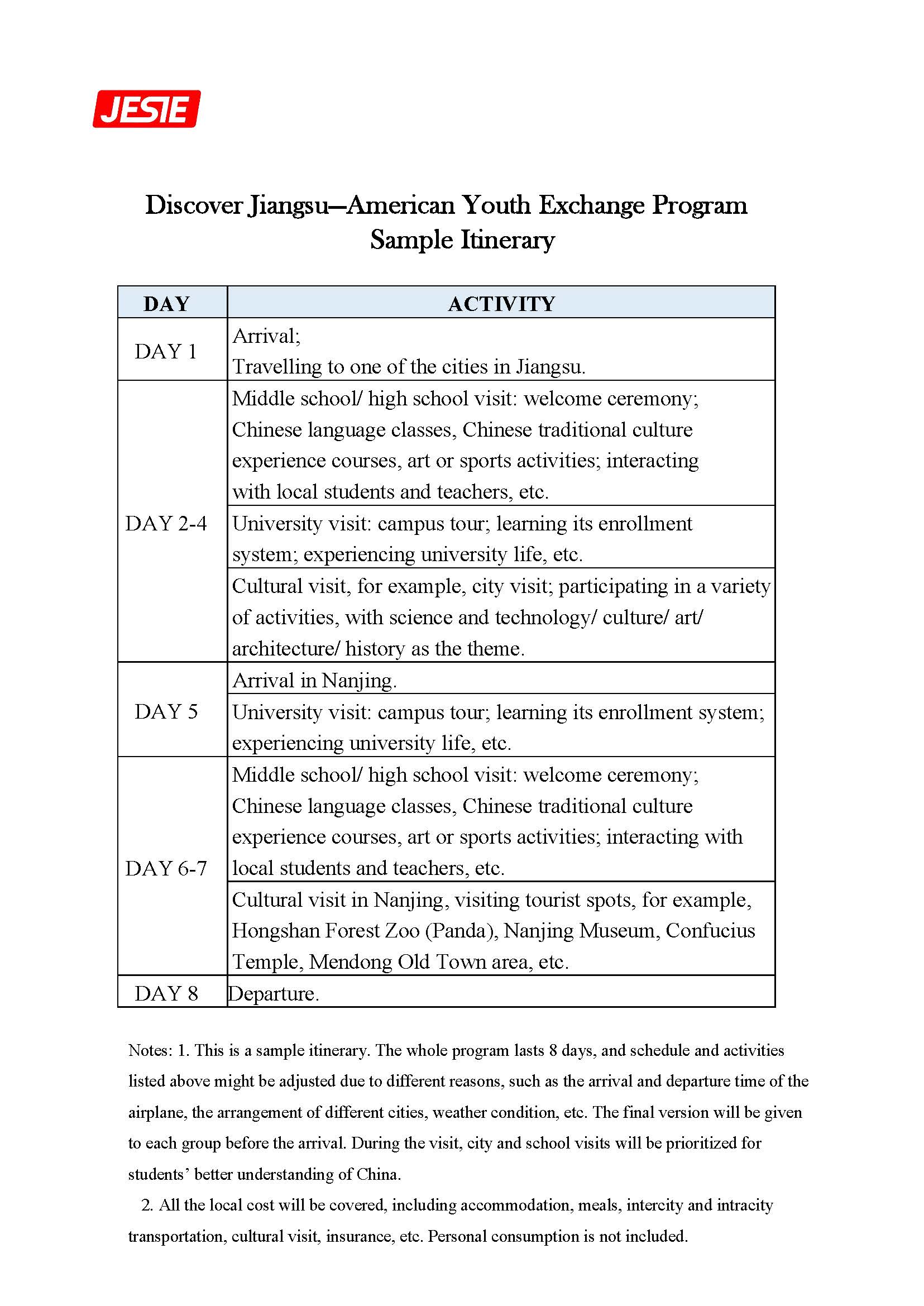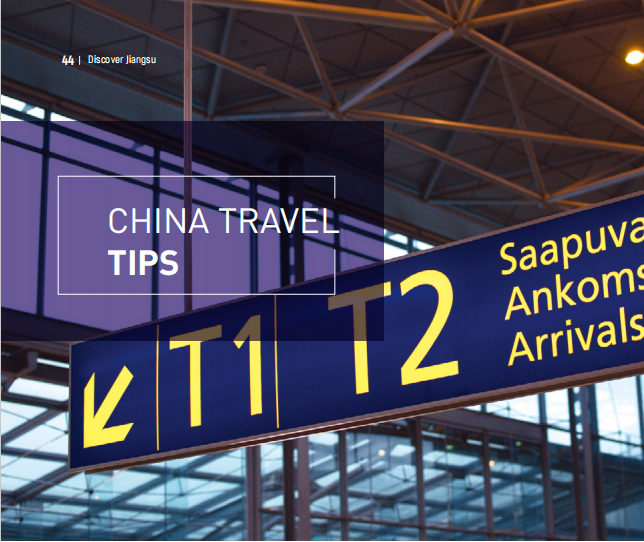Discover Jiangsu
To enhance global understanding of the Chinese language and culture, strengthen educational and cultural cooperation between Jiangsu Province and other countries, and promote international multicultural development, Jiangsu Education Services for International Exchange (JESIE) launched the Discover Jiangsu Program in 2015. This initiative seeks to foster friendly relations, attract more international youth to study in China, and expand cross-cultural exchanges through academic immersion.
The Discover Jiangsu Program aims to cultivate international students' interest in Chinese language and culture through Chinese language courses, school visits, interactive exchanges between Chinese and foreign teachers and students, as well as cultural study tours. Participants personally experience the distinctive characteristics
and educational philosophies of Jiangsu while gaining a profound understanding of the charm and essence of Chinese culture. Simultaneously, the program fosters friendship between Chinese and international students, broadens global perspectives, and develops international youth leadership.
The successful implementation of this program has been widely welcomed and highly commended by relevant international educational authorities and schools. The initiation of Discover Jiangsu Program has played a positive role in expanding the international promotion of Jiangsu education, enhancing cooperative exchanges between provincial schools and foreign institutions, and strengthening the global dissemination of Chinese language and culture. Moreover, it has laid a solid foundation for attracting more international youth to participate in short-term study and exchange programs in Jiangsu.


All the participants should stay in groups during the study, visiting and interaction time. During free time, participants should always keep the time and location for assembly in mind. Participants should always take the emergency contact information and the address of the host school.
Participants should always take good care of the valuables, including passport, cash, digital devices, etc.
Electricity
The electricity used in China is 220-volt AC. Many hotel washrooms have transformer plugs for electric shavers and hair dryers, but it is better to be prepared with an adapter plug.
Water
The tap water is not for drinking. Participants may need to either buy drinking water or drink boiled water.
Payment
The Chinese currency is called Renminbi, and is issued by the People's Bank of China. The unit of Renminbi is the yuan and the smaller unit is the jiao (10 jiao=1 yuan).
Electronic payment, also known as e-payment, has become increasingly prevalent and essential in recent years. People use mobile payment apps like Alipay and WeChat Pay on a daily basis to pay for groceries, meals, and transportation.
Credit cards issued by major global providers like VISA and Mastercard are commonly accepted in touristy areas. It is still recommended to check with your bank or card provider directly to make sure that Renminbi currency conversion is indeed supported, and that card machines and ATMs in China commonly support cards of this type.
Telephone and Postal Service
Telephone booths in the streets are mostly for local calls, so it is highly recommended to prepare the mobile phone SIM cards. The most widely used communication tool is WeChat. It will be quite convenient for the participants to contact others during the whole trip.
If participants want to send important items such as antiques and cultural relics that are under customs control, it is better to ask for the help of the local branch of the international post office, instead of the small post offices.
Some Useful Numbers
110--Police
119--Fire
120--Ambulance
121--Weather forecasts
Traffic
Please comply with the local traffic regulations. In China, traffic keeps to the right, so participants should look to left before crossing the road.
Table Manners
The main difference on the Chinese dinner table, apart from chopsticks instead of knife and fork, is that in the West, you have your own plate of food, while in China the dishes are placed on the table
and everyone shares.
In formal dinners, there are always public chopsticks and spoons for this purpose, but some hosts may use their own chopsticks. This is a sign of genuine friendship and politeness. It is always polite to eat the food. If you do not eat it, just leave the food on your plate.
Tips
It is not customary to leave tips at hotel or local restaurant as the bill usually includes 10-15% service charge.

访客通道(项目入口)
还没有账号?
立即注册